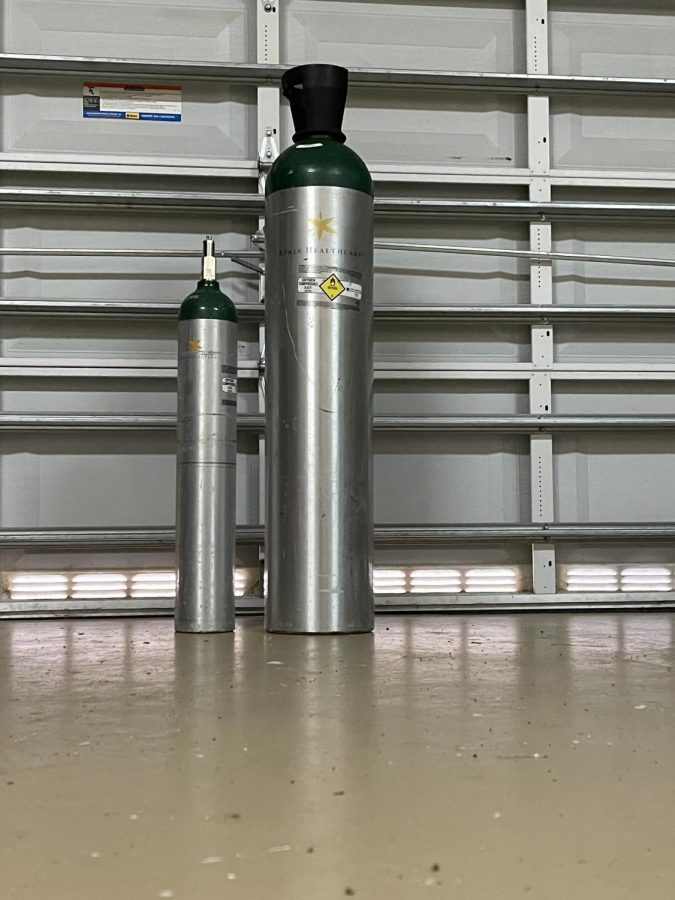Another casualty of Afghanistan’s takeover: a collapse of the Afghan healthcare system
A depleted cache of oxygen tanks, necessary for treating COVID patients.
Since the United States military evacuated Afghanistan on August 30, 2021, many terrorist organizations including ISIS-K and the Taliban have taken back what the United States fought to free. This terrorist takeover created insecurity for the people of Afghanistan about whether they would keep their basic rights, or how they would survive in the future. Afghanistan’s healthcare system has been severely damaged because of these events, and it directly affects Afghanistan’s citizens. Afghanistan’s healthcare system is in the middle of a health crisis because of a severe medicine shortage, COVID-19 and a lack of vaccination, and a nationwide hunger crisis, and other governments are doing nothing to help provide for this weakening nation and its citizens.
Afghanistan’s medicine shortage began soon after the United States military’s evacuation and the subsequent terrorist takeover. According to NPR News, “To prevent the Taliban from gaining access to aid money, the World Bank and other international aid organizations suspended $600 million in funding.” These gargantuan funding cuts, which were meant to restrict the Taliban from further damaging Afghanistan, have made it difficult for Afghans to buy medical supplies and have cut the salaries of doctors in many hospitals. Because of these funding cuts, many citizens are being denied access to trauma care, which is especially important during these times of escalating violence in the region.
Another effect of Afghanistan’s medicine shortage is the widespread disuse of COVID-19 vaccines, which has caused an increase in COVID-19 cases in Afghanistan. Hospitals that provide COVID-19 vaccines and COVID care are closing, and more are soon to follow suit, because of international funding cuts to Afghanistan. Forbes explains that “Nine of the country’s 37 Covid-19 hospitals have closed, and 1.8 million Covid-19 vaccines have not been used in a country where just 2.2 million people have been vaccinated out of a population of about 40 million.” These extremely low vaccination rates have contributed to the uptick of COVID cases in Afghanistan.
However, the most detrimental effect of the terrorist takeover in Afghanistan isn’t even COVID-19. Instead, it is the startlingly widespread food insecurity in Afghanistan. Over 95% of Afghan families are facing insecurity because of food crises in the struggling nation. As the United Nations has reported, “Rising job losses, lack of cash and soaring prices are creating a new class of hungry in Afghanistan.” The food shortage affects not only urban areas, where food prices are skyrocketing, but also rural areas. In rural Afghanistan farmland, farmers can’t grow crops because of a long drought that is affecting their farming season. The Afghan food shortage has played a major role in the destruction of Afghanistan’s healthcare system, contributing to a snowballing catastrophe.
Afghanistan’s terrorist takeover resulted in international funding cuts that were meant to prevent damage to other nations by the Taliban. However, the funding cuts severely affected the citizens of Afghanistan and caused the rapid deterioration of their healthcare system in Afghanistan’s time of need. The United States and Afghanistan’s neighboring nations should provide healthcare supplies, if not direct funding, to Afghanistan’s hospitals in order to protect the innocent Afghan citizens who have been caught in the midst of this turmoil.






